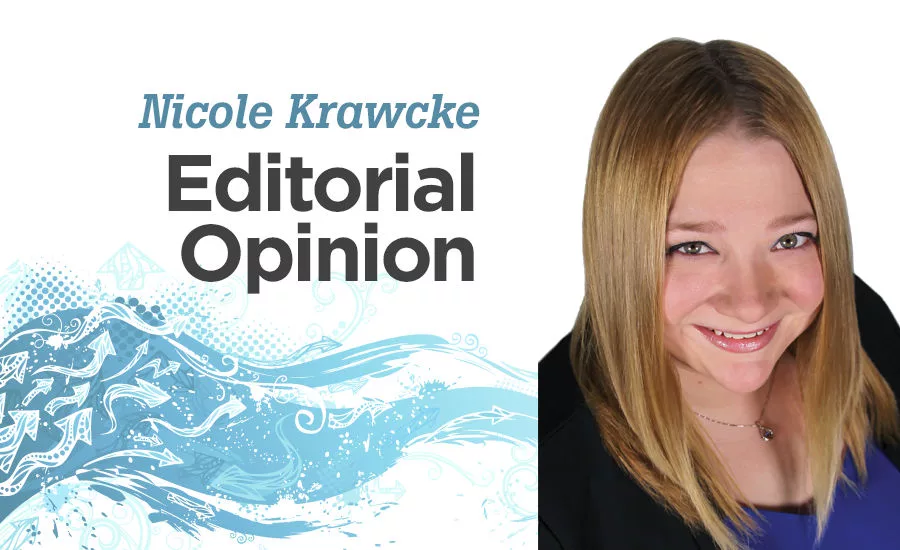Nicole Krawcke: We need to talk about the trades
Sharing personal experiences helps attract new talent.

Just over 10 years ago, when I graduated from college with my shiny new journalism degree in hand, never in a million years did I think I would be writing about the skilled trades — first HVAC, now plumbing. In fact, college was never not an option for me — a career in the trades never even crossed my mind. And that’s part of the problem today.
This industry provides a great career opportunity — the people are second to none and the innovation and technology keeps getting better and better. Still, it’s not enough to attract new talent to the trades. Employment of plumbers, pipefitters and steamfitters is projected to grow 16% between 2016 and 2026, which is much faster, by average, than most other occupations, according to the U.S. Department of Labor Bureau of Labor Statistics. For comparison, the average growth rate for all occupations is 7%. The opportunities are there — young people are just not aware of them. So the question becomes, how do we, as an industry, attract new talent to the trades? The answer: Talk about it!
This year, SkillsUSA is teaming up with Klein Tools to hold the inaugural National Signing Day — a program that will recognize over 3,000 students at hundreds of SkillsUSA chapter high schools across the country for their dedication to pursue a career in the trades. Similar to “National Signing Day” events for high school student athletes, seniors will be applauded as they announce their career plans, and will sign “letters of intent” for a job offer, apprenticeship or advanced technical training.
“This was a brainstorm between Klein Tools and SkillsUSA to find a way to celebrate the young people who were entering skilled trades pathways and gain some national exposure around the skilled trades,” says Tim Lawrence, executive director, SkillsUSA. “The stars have aligned for career technical education. As college debt has exceeded the level of credit card debt in our country, and as the demands of industry have grown with the economy moving forward, we just think it’s important we let the public and particularly parents understand the opportunities that exist.”
“We’ve all talked about the skills gap,” adds Greg Palese, vice president of marketing for Klein Tools. “It’s real, and it’s something that is naturally impacting companies such as ourselves. The biggest thing is about changing perceptions. There’s still a lot of stigma about people going into the skilled trades. Even with these staggering costs and students graduating with huge student loan balances, there’s still a big push to go to college. We know there are other signing events around the country, but we felt like taking it to a national level and letting all the kids in the country who are participating feel like they’re part of something special — part of something bigger — and let them feel the support from classmates, family, friends, teachers and the business community is a first step in changing perception of the skilled trades.”
The partnership between SkillsUSA and Klein Tools is great for building awareness, but we need to be doing more. Take Kevin Szabo Jr., our Plumber of the Month, for example (read about him on page 50). What began as a bring your dad to school for career day with his son, soon turned into Szabo Jr. visiting several local elementary schools, giving hands-on presentations to students and showing them how much fun plumbing can be. Now, he plans to start a monthly Plumbing Workshop.
“Plumbing and the trades need to be celebrated,” Szabo Jr. says. “Without licensed plumbers, we wouldn’t be able to live without our basic necessities. We want children to understand what a big part of our lives skilled tradesmen are. Parents should want their kids to go into the trades, it’s a guaranteed future.”
So, what are you doing to fill the skills gap? It doesn’t have to be a monthly workshop for kids or even a big event. Reach out to local schools about visiting students during career fair days to discuss the wonderful opportunities the plumbing industry holds. Explain how a career in the trades can be just as successful, sometimes more, than a four-year degree. Share your own success story with them. Get them curious and interested about learning more because if you don’t, who will?
Looking for a reprint of this article?
From high-res PDFs to custom plaques, order your copy today!









